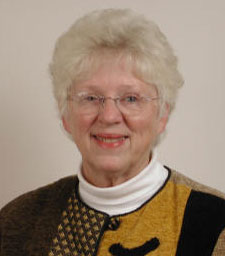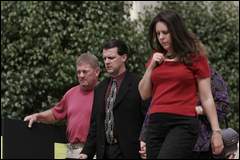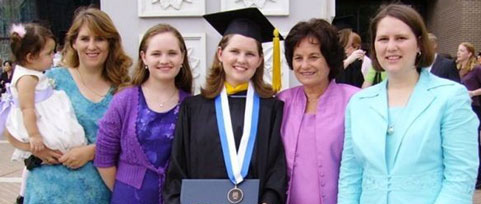03 Aug When Churches Merge
We have a superb track record when nearby UB churches merge. I wish the Elgin UB church had gone that route.
My mom grew up at Elgin, a small rural congregation outside of Van Wert, Ohio. I was related to a good share of the congregation, nearly all of them farmers. I say “was” because the church closed some years ago after doing what way too many small churches do–numbers decline, young families don’t seem interested, the long-time faithful grow increasingly frustrated that nothing seems to work, they go through years of just trying to hang on…and eventually they close. A family bought the Elgin building and turned it into a house.
It always made sense, to me, for Elgin to join forces with the nearby Monticello UB church. They were on a circuit for many years, no more than ten minutes away. The preacher would do his thing at Monticello while Elgin held Sunday school. Then he’d rush over to Elgin, arriving during the singing and just in time for the message. Some wonderful Christian people attended Elgin, and Monticello would have benefited from their wisdom and commitment.
But too many of the Elgin stalwarts–and I can say this, because so many were my relatives–were smitten with no small amount of pride, and I always sensed a touch of rivalry with the larger Monticello. They feared being swallowed up, feared losing power. So instead, Elgin died a slow death. Some wonderful people squandered years of ministry aboard a clearly sinking ship, until finally they just gave up and closed.
On the other hand, consider these churches:
- In 1985, three congregations merged to form the Lake View UB church in Camden, Mich., which today is a thriving congregation.
- In the 1990s, the Calvary and Otterbein UB churches of Rockford, Ohio, merged. Today this growing congregation, called New Horizons, has a superb building on new property.
- In 2000, the Immanuel UB church in Carlisle, Pa., merged with a non-UB church to form today’s Bethany Evangelical Church, a UB congregation.
- Last year, two churches in or near Willshire, Ohio, merged to form PraisePoint. The Willshire and Zion churches, once both small and struggling, now have an amazing new building on a busy corner in Willshire, and their future is bright.
Merging congregations like this just plain works. As far as I can tell, our track record is 100 percent. I’m sure it’s the answer for some of today’s struggling UB churches. I hate seeing fine Christian people wither in frustration when they could become part of something alive and growing–something that would bring them great joy. But there is a price to pay in “giving up” power, control, and heritage, even though it’s for a greater cause. Too many congregations aren’t sufficiently courageous and selfless to make it happen. But others are. Perhaps your church has what it takes. Yeah, I’ll bet you do. See that UB church 10 or 20 minutes away? Talk to them.

 Dr. Patricia Zezula has decided to retire after 37 years on the Huntington University faculty. She began as an instructor in the Department of Physical Education in 1969 and moved up through the ranks, becoming a full professor in 1990. Zezula earned her doctorate in educational administration from Ball State University in Muncie, Ind.
Dr. Patricia Zezula has decided to retire after 37 years on the Huntington University faculty. She began as an instructor in the Department of Physical Education in 1969 and moved up through the ranks, becoming a full professor in 1990. Zezula earned her doctorate in educational administration from Ball State University in Muncie, Ind.
